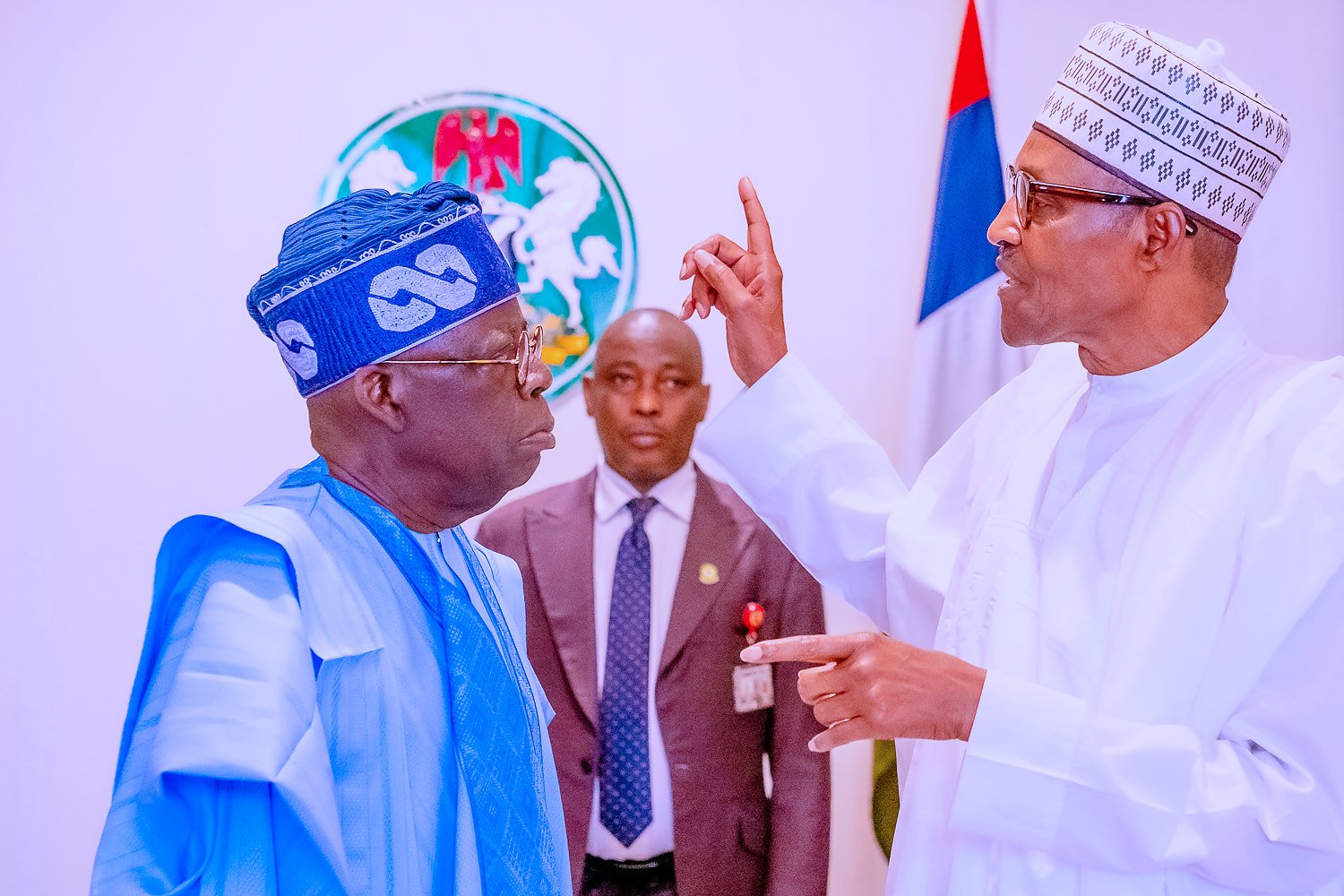BY SUNDAY JAMES
In the sunlit quiet of Kaduna, far from the corridors of Aso Rock, Nigeria’s former President Muhammadu Buhari is once again receiving political pilgrims. Gone are the processions to Daura. Now, his Kaduna residence has become the new shrine for politicians eyeing 2027, each arriving with hushed hopes of a “mega coalition” to unseat President Bola Ahmed Tinubu.
The scenes are familiar: former adversaries exchanging pleasantries, tired political actors whispering unity in the language of ambition. But the script feels like déjà vu, another performance in Nigeria’s cyclical theatre of power, where coalitions are born not from ideology or vision, but from mutual suspicion of the man at the top.
Buhari’s role in this is puzzling. He left office in 2023 with a legacy more questioned than celebrated. His presidency, once a symbol of austere hope, ended under the weight of economic decline, widespread insecurity, and growing disillusionment. His famed northern base, while still respectful, no longer offers him the political capital to crown a successor or dethrone an incumbent. And true to form, Buhari has remained aloof, smiling, nodding, but offering little more than polite silence.
Advertisement
Yet, some opposition figures still believe proximity to the former president grants them legitimacy. Atiku Abubakar, Peter Obi, Nasir el-Rufai, and others flirt with the idea of a grand alliance, perhaps forgetting that Nigerian coalitions are often long on optics and short on cohesion. The opposition, fractured by ego and regional calculations, still lacks a unified story that inspires voters beyond its disdain for Tinubu.
And Tinubu, for all his troubles, remains a formidable political force. His nearly two years in office have not endeared him to many Nigerians. His economic policies, fuel subsidy removal, and exchange rate reforms, while praised by technocrats, have deepened hardship for millions. Prices have soared, the naira has stumbled, and insecurity continues to haunt communities. The “Renewed Hope” agenda now feels more like a slogan than a plan.
But Tinubu is no novice. He has spent decades building political networks that reach into every crevice of Nigeria’s governance structure. While the opposition meanders in strategy meetings, Tinubu consolidates power, with patronage, party control, and a keen understanding of electoral dynamics.
Advertisement
The challenge for those seeking to unseat him isn’t just that Tinubu is prepared, it’s that they are not. Buhari cannot save them. A coalition that’s united only by its opposition to Tinubu will struggle to convince a hungry, hurting electorate. Nigerians are tired, not just of the president, but of recycled alternatives with no clear plan.
If the opposition hopes to make 2027 a real contest, it must offer more than strategic selfies and closed-door handshakes. It must find its soul. It must speak not just to power, but to people, to their pain, their aspirations, and their dignity. Otherwise, the meetings in Kaduna will be remembered as just another political mirage, hopeful, hollow, and lost in the desert of ambition.
Sunday James is a public affairs analyst and communications strategist. He writes on governance, international development, political culture, and democratic development in Africa.
Advertisement
Views expressed by contributors are strictly personal and not of TheCable.


